
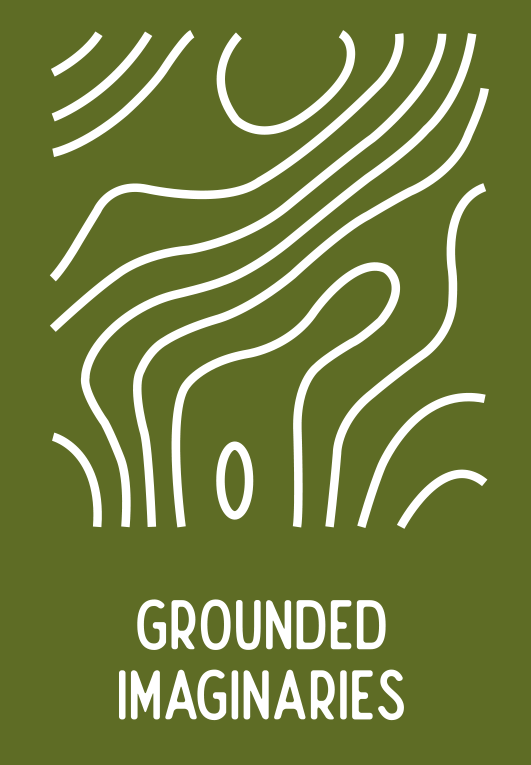
The impact of climate change on our collective future goes beyond material dimensions of life (such as water, food, energy, health, and more) to subjective dimensions of life as well (such as human perceptions and imaginations of the future). These dimensions shape each other, as they shape human action. In the words of Amitav Ghosh, the climate emergency poses a crisis of imagination, which in turn poses a crisis for action.
This is a project about stories and action. Through this project, we propose that an imaginary already exists, in the stories of numerous communities around the world already responding to climate-changing conditions, crafting and forging different futures. These examples range from sustainable local food, regenerative farming, community energy and transition movements to communities planning for climate adaptation.
This project, titled “Grounded Imaginaries” aims to document and communicate existing stories of community resilience and adaptation to climate change across 3 regions: the Western Himalayan region, South India and Australia. The project is being carried out in collaboration by 3 partners:




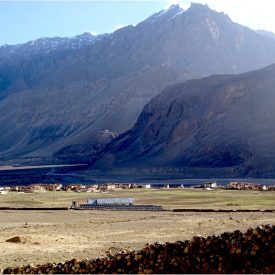
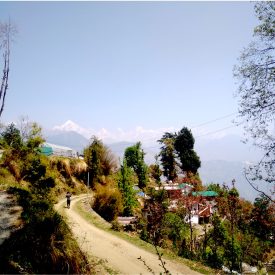
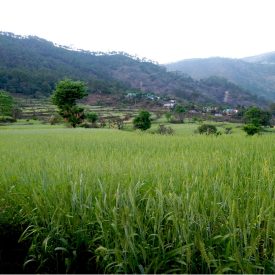


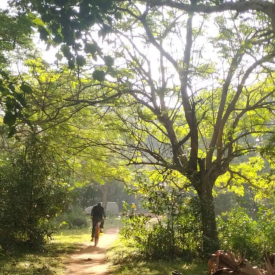
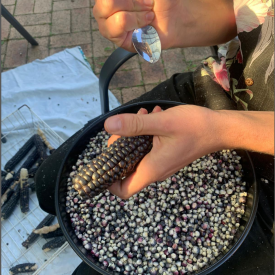
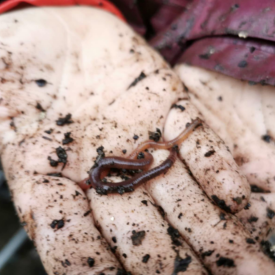

There have been significant changes in climate variability in the Hindu Kush Himalayan region since the advent of the twentieth century – with increases in mean temperature, higher rate of warming in the winters, erratic rainfall, increase in magnitude and frequency of extreme weather events being observed. Such rapid change in the climate could trigger a multitude of biophysical and socio-economic impacts, such as biodiversity loss, increased glacial melting, and less predictable water availability.
However, through this project, IABT identified and worked with 3 exemplary local communities who are actively participating in shaping their own climate-resilient futures:
Through this project, we looked at how these communities around the western Himalayan region are already responding to climate-changing conditions, crafting and forging different futures – in collaboration with 3 community partners:
Navikarana Trust (Zanskar, Ladakh)
Maati Sangathan and Himalayan Ark (Munsiyari, Uttarakhand)
UYRDC (Chamoli, Uttarakhand)
One of the larger objectives of the project was to develop the leadership capacities of youth to collaborate in and communicate community based responses to system breakdown. Launched in 2022, the Western Himalayan Youth Fellowship brought together local youth from different communities to work with our community partners.
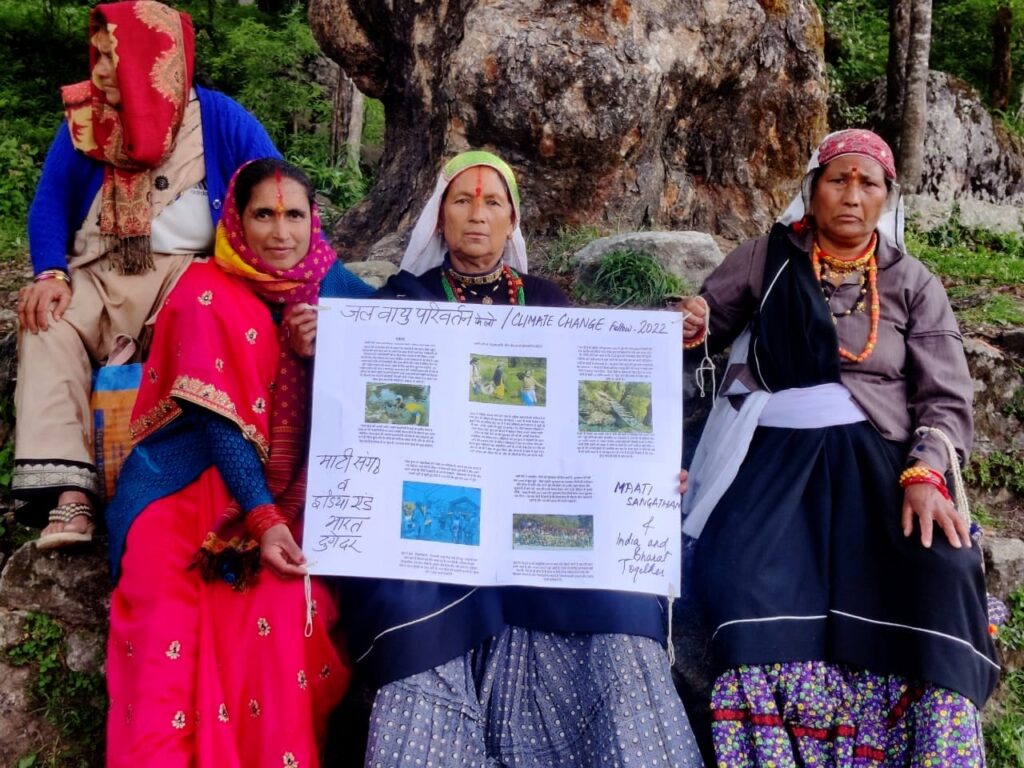
Youth fellow Anjali presented a poster on the community’s collective efforts for reviving the local pond, at the Forest Festival of Sarmoli village, Munsiyari district. The aim of this presentation was to explain scientific ideas of climate change to rural communities in accessible terms and was well received by the audience comprising of school children, people from nearby villages and members from the Maati Sangathan, our partner organisation in the field.
This event shared the key project findings back to the community and was attended by the founders/ director of partner organisation – Navikarana Trust, Mr Lobzang Wangtak & Mr Sushant Guleria. A video about Pishu’s water crisis was shown with an emotional reaction from the audience. Posters about the site-specific climate challenges in Western Himalayas were displayed and art workbooks, educational books and stationary were given to local teachers for their students.
ये बारिश, जंगल, पहाड़, पानी और कच्चे रास्ते.. मुझे पकड़े हुए है या मैं इन्हें समझ नहीं आता…!!! Translates to: “This rainfall, jungle, mountains, water and these unpaved roads….Am I held by them or am I not understood by them…!!!” This Instagram reel, by youth fellow Anjali, shows the natural beauty of Sarmoli Village in Munsiyari, Uttarakhand.
Author:
Site:
Description:
Download here
Author:
Site:
Description:
Download here
Author:
Site:
Description:
Download here

Arun Prasad from Devalsari, Uttarakhand has his own small conservationist group, he works on traditional agriculture and horticulture but his main work is beekeeping, conservation and promoting traditional practices of doing so.

Dawa Dolma from Leh, Ladakh has worked as a reporter for a local newspaper called Reach Ladakh for almost two years. She then worked at the Leh Nutrition Project as a research associate. She is currently an independent journalist writing on earth stories from Ladakh in local journals, NGO newsletters, and digital media.

Anjali from a small village named Rachiyad, Himachal Pradesh is a sportswoman and also has been associated with the Dharchidi group for the last 2 years. Dharchidi is a group of pahadi girls who are trying to understand social issues experienced by pahadi girls and start a local dialogue process on issues of hill women like menstruation, violence, labour, body and patriarchy.

Stanzin Dorijay from Wanla in Ladakh is a role model for mountain youth. Just 23, he organises winter education camps for his village children, awareness programs on organic farming for farmers in his village, does mushroom cultivation and trainings, works on fungi collection, promotes pashmina production, works on a homestay, does trekking, is involved in eco farm practice, cultural conservation and is currently also working on making an artificial glacier near his village on his own.

Vijay Singh Jethi from Jethi Gaon, Pithoragarh is from a small village in Pithoragarh. He has worked with the Van Raji (a tribe of forest dwellers) and also works on preservation of his culture apart from working on fields and hiking with shepherds.
Babloo Farswan from Sarmoli, Munsiyari who works as a nature and trekking guide. An enthusiastic and avid bird watcher belonging to the local community of Sarmoli.

Mayank Shah is a researcher currently leading the Western Himalayan site of the Grounded Imaginaries project with IABT. Mayank belongs to the Himalayan region with a PhD in economics and has varied research experiences and interests which move across various domains of socio-ecological system researches focussed across the Himalayan region.
Sambhavi VPJ is an environment education researcher with 5+ years experience in analyzing NGO projects in Himalayas. She brings with herself strong qualitative and quantitative research skills, and is a critical thinker with a passion for facilitating human development.

